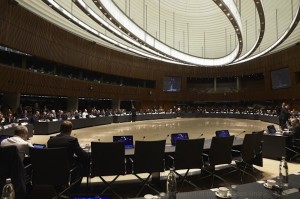EU Justice and Home Affairs ministers will discuss in Luxembourg on October 7–8 key issues of data protection, fight against euro counterfeiting, free movement of persons, Syria refugee crisis and the sea tragedy outside of Lampedusa.
The Justice part, chaired by the Lithuanian Minister of Justice Juozas Bernatonis, will start with the discussion on one of the key issues in the proposal for a General Data Protection Regulation – the so called “one-stop-shop” principle. The Presidency will ask the Ministers for orientation on which of the proposed directions would bring most benefit for businesses and ensure efficient protection of the citizens’ rights in the EU internal market.
“The “one-stop-shop” principle would reduce some compliance costs ensuring that companies which operate across several member states will be supervised by the single supervisory authority in their home country. However, reducing financial burden for business should not affect the protection of individuals and this must be balanced,” said Minister Bernatonis.
The Lithuanian Presidency will also seek that the Council approves the agreement on the Directive on the Protection of the Euro and Other Currencies Against Counterfeiting by Criminal Law. It should make the European Monetary Union more secure by strengthening the protection of money in circulation or designated as legal tender through criminal law sanctions and improving cross-border judicial and law enforcement cooperation.
“The euro is used by 330 million people in 17 Member States and its counterfeiting affects honest citizens and companies. It must be uniformly protected in all European Union countries. Harmonization of the criminal law measures on the EU level will strengthen fight against these offenses. Legitimate interests of all those using the euro will be better safeguarded, citizens and companies will have more confidence in the authenticity of the euro banknotes and coins,” said Minister Juozas Bernatonis.
The European Commission Proposals on the Establishment of the European Public Prosecutor’s Office and on the Reform of EU Agency for Criminal Justice Cooperation (Eurojust) will be presented for political discussion which will guide further work by experts.
On the second day of the Council chaired by the Lithuanian Minister of Interior Dailis Alfonsas Barakauskas, the Home Affairs ministers will discuss various aspects of the Syrian crisis, with particular focus on the situation of the Syrian refugees and the EU response.
“Some 2 million people have registered or await registration in neighboring countries and it continues to cause deep worry in the EU,” said Minister Barakauskas.
The ministers are expected to discuss the tragedy outside the Italian island of Lampedusa where more than 100 African migrants are confirmed to have drowned.
The Council will hear the interim report by the Commission on certain issues related to the free movement of EU citizens, based on information provided by the Member States.
EU High Representative for Foreign Affairs and Security Policy Catherine Ashton is to present issues of the civilian missions of the Common Foreign and Security Policy and encourage the Member States to participate actively.
The Council will seek a political agreement on provisional arrangements to host the European Police College (CEPOL) seat in another Member State after the UK indicated it no longer wants to host it on its territory. Seven EU Member States – Greece, Finland, Hungary, Ireland, Italy, the Netherlands and Spain – have submitted applications to host the College.
-
In primo piano
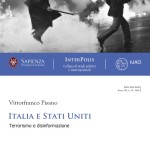 Gli Stati Uniti non sono responsabili del terrorismo...
Gli Stati Uniti non sono responsabili del terrorismo...
7 febbraio, 2017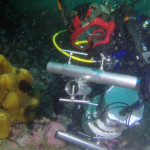 I fondali dell'Antartide sono un mondo che non ti aspetti:...
I fondali dell'Antartide sono un mondo che non ti aspetti:...
29 febbraio, 2016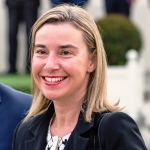 Discussing Europe with Ms Federica Mogherini
Discussing Europe with Ms Federica Mogherini
17 settembre, 2015
Articoli Recenti
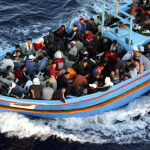 Immigrazione e Nazione
Immigrazione e Nazione
15 novembre, 2024 Filippo Tommaso Marinetti ed il movimento futurista
Filippo Tommaso Marinetti ed il movimento futurista
23 maggio, 2023 Italiani e Francesi “cugini” litigiosi per seri ma anche per futili motivi
Italiani e Francesi “cugini” litigiosi per seri ma anche per futili motivi
6 maggio, 2023 Don Antonino Collurafi da Librizzi, maestro di “broglio” a Venezia
Don Antonino Collurafi da Librizzi, maestro di “broglio” a Venezia
23 aprile, 2023 L'affare Bolo Pascià: un episodio dello spionaggio italiano della Grande guerra
L'affare Bolo Pascià: un episodio dello spionaggio italiano della Grande guerra
19 aprile, 2023
I più letti
 La Folgore intona il canto degli Arditi e la stampa italiana lo etichetta inno fascista – I vertici militari aprono un'inchiesta
La Folgore intona il canto degli Arditi e la stampa italiana lo etichetta inno fascista – I vertici militari aprono un'inchiesta
31 luglio, 2014 Il COCER sui marò: chiediamo di parlare con il Presidente del Consiglio Matteo Renzi
Il COCER sui marò: chiediamo di parlare con il Presidente del Consiglio Matteo Renzi
25 giugno, 2015 Il Ramadan (30 giorni di digiuno, secondo pilastro dell'Islam)
Il Ramadan (30 giorni di digiuno, secondo pilastro dell'Islam)
12 agosto, 2013 Vasco Rossi con il tour “Live Kom '014” a Roma e Milano
Vasco Rossi con il tour “Live Kom '014” a Roma e Milano
29 ottobre, 2013 Il segreto della Massoneria è la comunicazione
Il segreto della Massoneria è la comunicazione
12 luglio, 2017





 04 Ott 2013
04 Ott 2013
 Inviato da Clara Salpietro
Inviato da Clara Salpietro 


